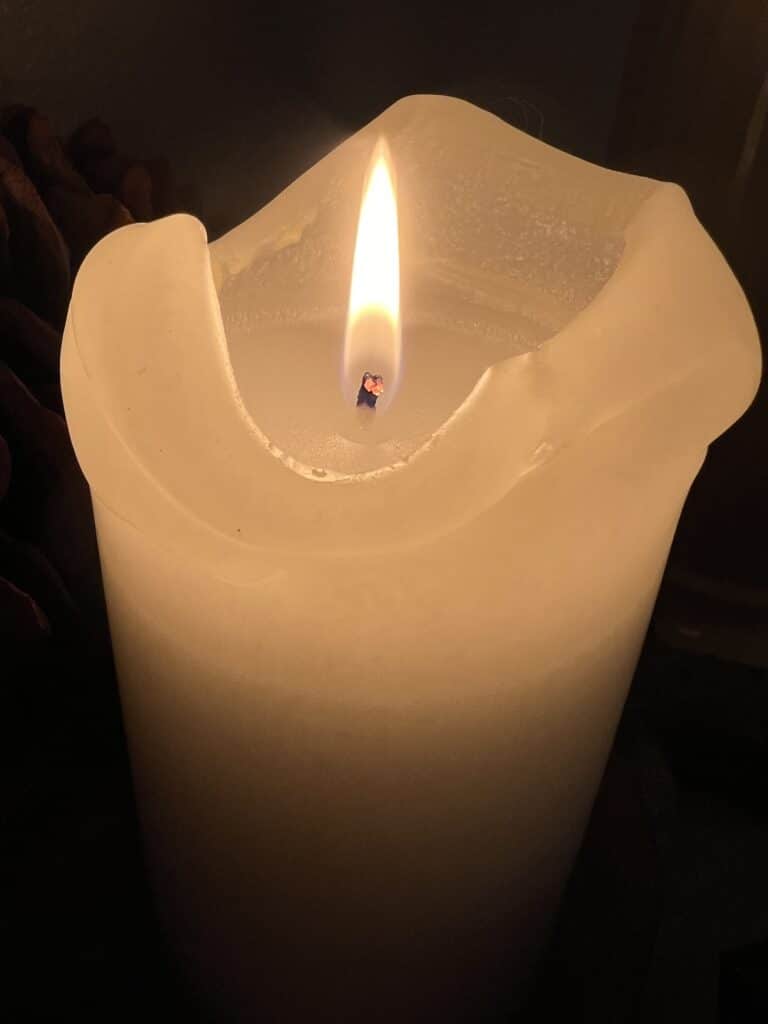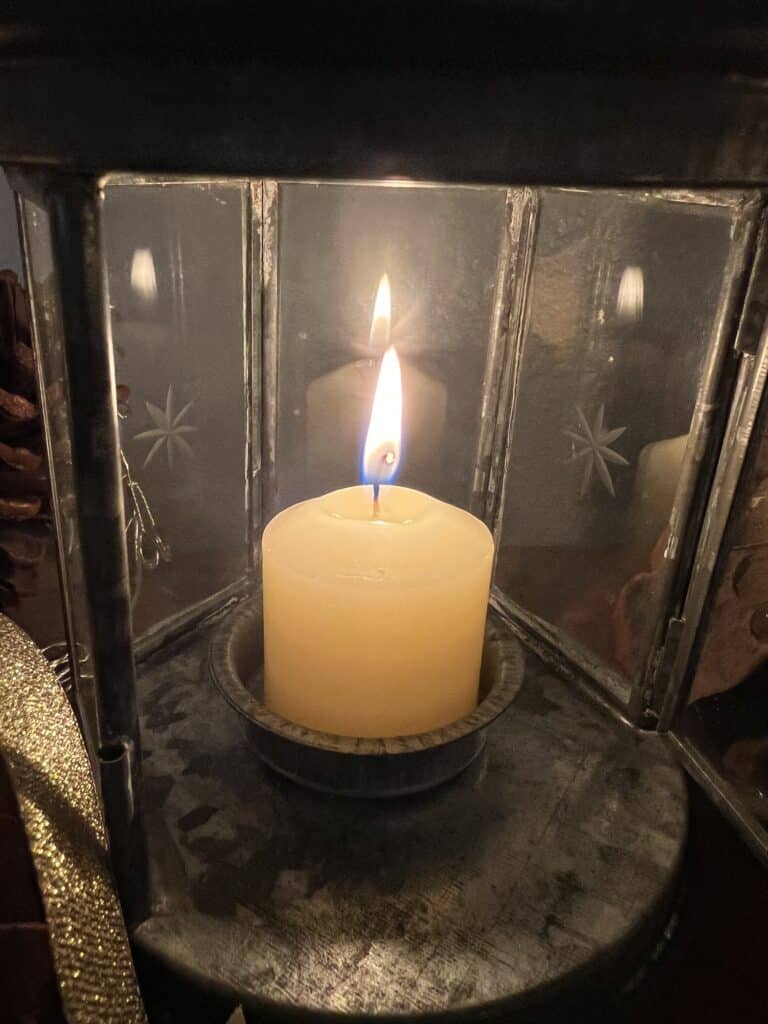Community Health & Wellness
Church service accommodates those struggling through holidays
Holidays can be filled with joy, love, beautiful decorations, savory foods and sweet treats. But they can also mark memories that bring grief for those who have lost loved ones or broken away from friends or family. For some, choreographing a magical experience for everyone else brings added anxiety, and exhaustion.
Health & Wellness Sponsor
Health and Wellness stories are made possible in part by Virginia Mason Franciscan Health, a proud sponsor of Gig Harbor Now.
The pressure of making merry and expecting the season to be a constant party might be less common these days, said Molly Fraser, head pastor at Gig Harbor United Methodist Church.
Holidays not easy for all
“Our society is finally understanding that the holidays are not good and easy for everyone,” she said, “and by stating that, there are a lot of churches and organizations that care about that. It can be easy to assume we are going to go into a church and have no one understand, and I don’t think that is true anymore.”
The Gig Harbor church had long hosted a Longest Night service for those experiencing grief and difficulties that can come with the season. The past few years, it changed to a Blue Christmas service.
“Blue Christmas is more blues in a sense of grief, for people who are grieving anything at all, and dealing with stresses of the world, difficulties in their family, not get things to go your own way, whether in your own life or world issues,” Fraser said.

The Blue Christmas service is quiet and reserved, amid about 150 candles and soft carols. Photo by Marsha Hart
It affords the opportunity to be anointed by a pastor or take communion, but nothing is forced.
“I think humanity needs rituals to mark time and space and events in our lives,” Fraser said, “so if we don’t participate in any of the rituals of the season, it makes it hard to move on in your grief.”
The holidays can evoke special dates and memories that spark emotions, said Dr. Maxwell Anderson, a psychologist who will be joining The Family Center for Behavioral Health on Point Fosdick Drive in Gig Harbor in January.
“Grief is a significant emotion during this time of year as we are confronted with memories of the past and loved ones that might no longer be with us,” he said. “But, it’s also not uncommon for other emotions like regret, resentment, anger, frustration and loneliness to seep out as well.
Holidays can trigger emotions
“I’ve had many clients who dread particular times of the year or important dates because they anticipate the flood of difficult emotions that it will trigger.”
The feelings, though they can be uncomfortable and scary, should be acknowledged.
“The most important thing is to allow yourself to feel those feelings or emotions,” Anderson said. “Instead of shying away from them or pushing them down, allow them to come when they do and become familiar with them. The more we understand difficult feelings and ourselves, the less likely it is that they will come out in ways that are more unhealthy like causing withdrawal or lashing out.”
Journaling, scheduling a short break each day to acknowledge feelings, and making a space for processing emotions can be part of a practice.
Moodiness is normal, especially this time of year, Anderson said.
“It is extremely common for people’s moods to dip in the winter months, especially in the PNW where many of us don’t see the sun for weeks at a time,” he said. “Going to work in the dark and returning home in the dark definitely takes a toll on our overall well-being, so I want to try and normalize these feelings right off the bat.”
Seasonal affective disorder afflicts many
However, for some it may be more serious. According to the American Psychiatric Association, about 5% of the population suffers from seasonal affective disorder. SAD lasts for about 40% of the year. The onset comes when the weather gets colder, skies go grayer and days grow shorter.
“This disorder goes a bit further than the dip in mood, motivation and energy that many people experience in the winter months,” said Anderson. “To qualify as SAD, the depressive symptoms need to really get in the way of our everyday life — socially, occupationally and/or academically.”
SAD can be mitigated by setting routines around sleep and scheduling physical activity. Eating healthy foods on a regular schedule and taking time to socialize and participate in leisure activities are also important.
Tips to combat SAD
“Each of these areas is especially susceptible to disruption during this time of year, so it is important to do our best to protect them,” Anderson said. “For sleep, try and resist the urge to crawl into bed early or stay in bed later. I know it can be difficult because of the increased darkness, but it is important for your body’s natural clock to try and stick to as consistent a sleep schedule as possible. If we sleep too much or too little, our mood, motivation and energy are some of the first things to go.”
As for exercise, it’s vital to set attainable goals.
“Come up with a reasonable plan that you can actually follow through on,” Anderson said. “Be careful not to fall into the New Year’s resolution trap of setting a goal that isn’t sustainable for your life. A sustainable exercise plan could start with something as simple as committing to taking a 10-minute walk after lunch. Anything is better than nothing.”

The holidays can bring grief for those who have lost loved ones or broken away from friends or family. Photo by Marsha Hart
This time of year we crave comfort foods and unhealthy treats. While they are a mood booster for some, Anderson said they are best consumed in moderation.
Though it might be tempting to hibernate, so to speak, Anderson said it is important to prioritize activities that are most likely to bring purpose, relaxation and happiness.
“Try to be intentional and plan ahead when it comes to engaging with family and friends or doing things you enjoy,” he said.
For those who believe these suggestions are easier said than done, Anderson said to start small and sometimes force ourselves to do what we know we need to do.
“Motivation is unfortunately not something that we can just wait to strike,” he said. “It is something that gets easier the more we practice, and ultimately becomes a habit.”
One of the most important elements of self-care is being surrounded by people who love and support you as you work toward feeling better.
Finding help
For those who believe they need a mental health professional, they can start by going to psychologytoday.com and entering an insurance provider and zip code, Anderson said. There are also online options for counselors.
Those experiencing depression, negative thoughts, thoughts of self-harm or suicidal ideation should call 988.
Anderson will begin practicing with The Family Center for Behavioral Health at 4411 Point Fosdick Drive in January. The office phone number is (253) 851-3808.
The Gig Harbor United Methodist Church is at 7400 Pioneer Drive in Gig Harbor. The Blue Christmas Service will be held on Dec. 13 at 7 p.m.
You can reach Marsha Hart at [email protected].



